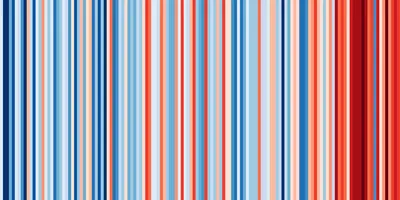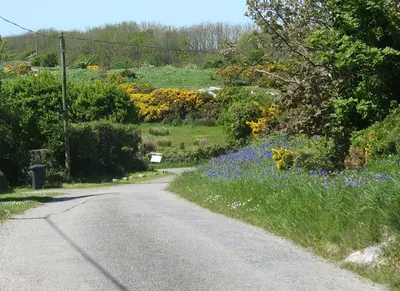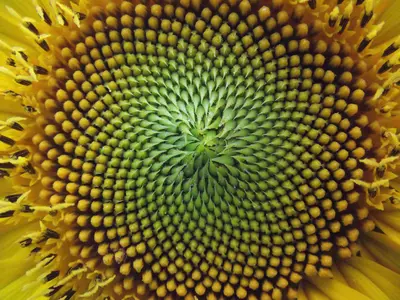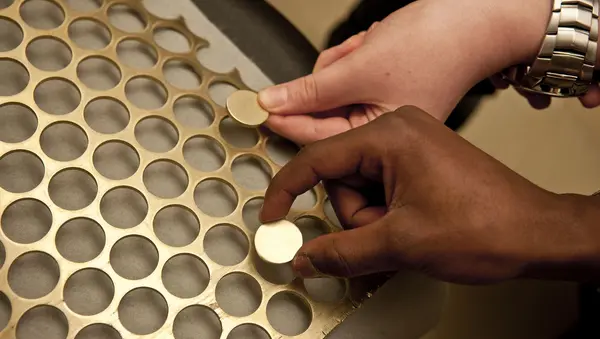Every Week is Maths Week: Earth Day

Today is Earth Day! Earth Day celebrates global efforts to tackle climate issues,ask from political steps such as the Paris Agreement to individual efforts of recycling and reusing.
In celebration of Earth Day we are looking at maths in the environment and how maths can help us protect it.
Look
Climate change has dominated the news over the last few years. This refers to the change in climate over a long period of time, rather than just day to day. Temperature data is collected and recorded from weather stations. Mathematicians can use this data to build up a picture of changes in temperature, and create models to predict what will happen in the future.
See how temperature has changed in countries around the world in this beautiful interactive chart.

It is not just climate data that is helping to protect and plan for our environment. Forest 2020 uses satellite images of forests to monitor changes. Changes in images helps park rangers to find illegal logging and de-forestation in thick woodland areas they would not normally be able to monitor.
Do
What is happening outside in our own green spaces is also very important. Have a go at your own data collection project. Count how many birds you can spot outside your window in 10 minutes.
How many of the same species did you spot? Try it over the next few days, do you see the same species or different ones? Can you create a chart showing your findings?
You can tweet the RSPB with pictures of your findings #BreakfastBirdwatch to compare how yours compare around the country.
In 2019 Springwatch challenged people to a Garden Watch and to send in data about what was happening in your back gardens. Mathematicians collated and mapped this data to get an idea of how gardens, balconies and windowboxes around the country support nature.
Learn
Prime numbers may just seem like a sequence of numbers, but can mean life or death in the animal world. Prime numbers are numbers divisible by 1 and themselves.
1, 2, 3, 5, 7, 11, 13, 17, 19...
Population numbers of any one species of animal increase or decrease in cycles based on how easy it is for them to hunt. If there are lots of prey animals one year then the predators can eat lots, meaning they will have more young the next year. If there are more predators then there are fewer prey the next year (they've been eaten!). Some species of cicada emerge from the soil every 13 or 17 years to molt and mate. By emerging only on prime number years this reduces the likelihood that predators are also peaking that year.
For example, if predator numbers are peaking every 2 or 3 years, they won't peak in years 13 or 17.
Scientists think 2020 might be a very good year for insects because many councils are too busy at the moment to cut grass and roadside verges. If there are lots of insects (prey) this year - do you think there will be more or fewer birds (predators) next year?

Do
The Fibonacci sequence is a sequence of numbers where the next number is made by adding the two previous numbers
1,1,2,3,5,8,13,21,34,55,89, 144...
We can find fibonacci numbers in nature in spiral shapes, for example in the seeds of a sunflower as shown here by the Museum of Mathematics.
From pine cones, petals, shells, tree branches and even massive swirling galaxies these fibonacci spirals are all around us. Can you find any?

Maths can be found all around us in nature and can help us to both understand and protect it. Happy Earth Day and be sure to let us know on Bluesky or Facebook what maths in nature you have found this week
Latest News and Events

STEM Ambassadors in Scotland Week 2026
STEM Ambassador in Scotland (SAIS) Week is a celebration of all things STEM in Scotland through the experiences of our STEM Ambassadors.

Active Maths Challenge
Start the year with our mini Active Maths challenge and measure what progress you can make over four weeks.

Money Maths at Museum on the Mound
We are excited to offer Maths versions of our popular money-themed schools workshops. These are entirely free of charge. Best suited for P5-P7 pupils.